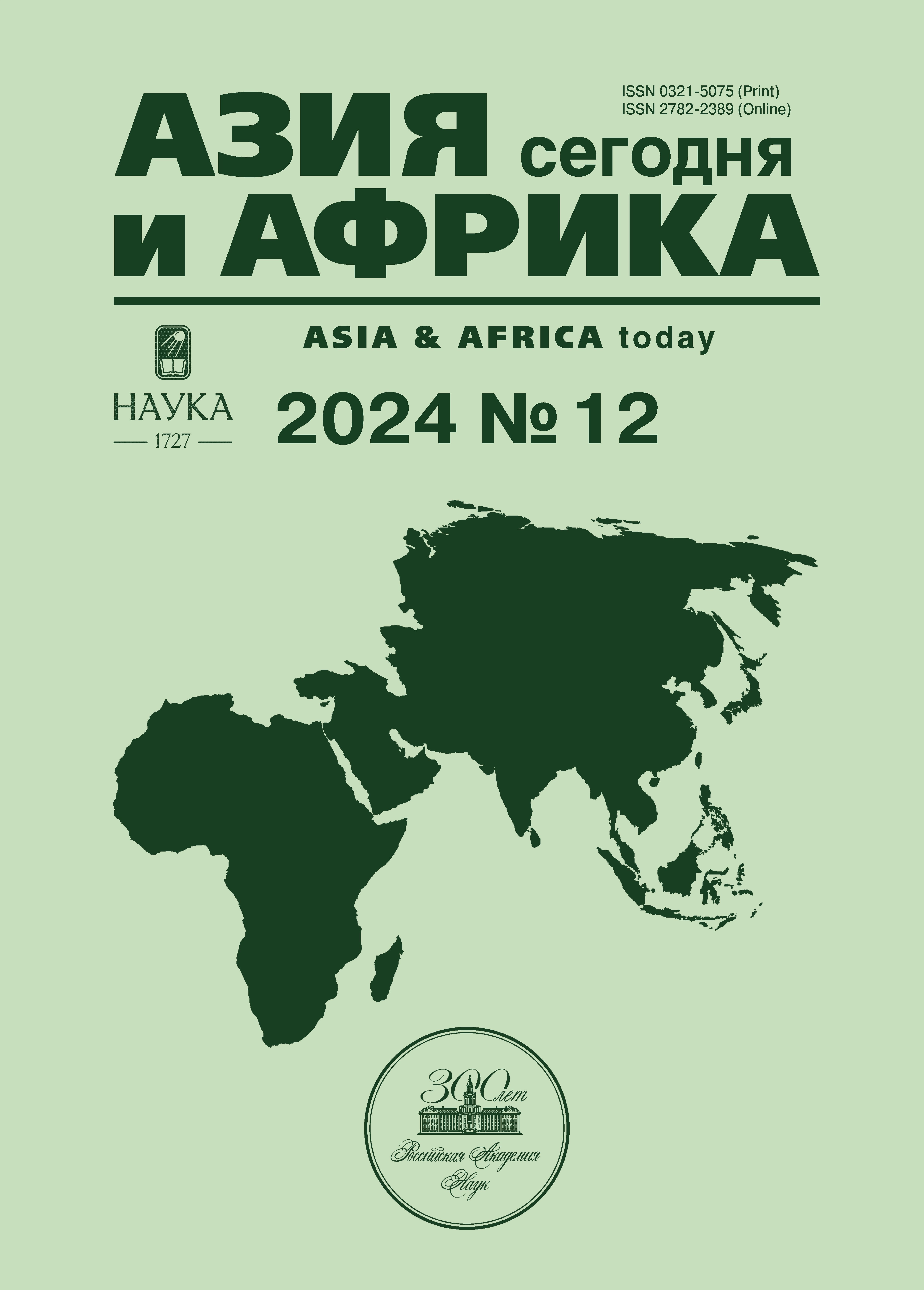On the Problem of Access to Clean Water in Africa
- Authors: Konstantinova O.V1
-
Affiliations:
- Institute for African Studies, Russian Academy of Sciences
- Issue: No 12 (2024)
- Pages: 65-72
- Section: Politics, economics
- URL: https://jdigitaldiagnostics.com/0321-5075/article/view/647463
- DOI: https://doi.org/10.31857/S0321507524120081
- ID: 647463
Cite item
Abstract
Currently, the environmental situation in the world is deteriorating due to population growth, urbanization, agricultural and industrial pollution of wastewater. This is especially noticeable in regions experiencing water shortages, one of which is the African continent. The work identified the necessary and sufficient levels of access of African countries to clean water and gave a forecast for their change, taking into account the changing demographic, socio-economic and military-political situation. The growing African population increases the demand for water to satisfy thirst and household needs, requires more food, which leads to an increase in water intake for agriculture and food production. In addition, military and political tensions on the continent cause cross-border movement of a large number of Africans, which increases the burden on host countries, increases the deficit of water resources, weakens sanitation, and leads to an increase in water-related diseases. To solve the problem of water shortages on the African continent, it is necessary to adopt comprehensive programs for the development of water management and increase its investment, raise the level of public awareness and train specialists in the field of water use.
Keywords
About the authors
O. V Konstantinova
Institute for African Studies, Russian Academy of Sciences
Email: ryabina111@yandex.ru
ORCID iD: 0000-0002-3163-4925
PhD (Economics), Researcher Moscow, Russia
References
- Simpson G.B., Jewitt G.P.W., Mabhaudhi T., Taguta C., Badenhorst J. 2023. An African perspective on the Water‑Energy‑Food nexus. Scientific Reports. 06 October 2023. https://doi.org/10.1038/s41598-023-43606-9 (accessed 31.05.2024)
- Chitonge H. 2020. Urbanisation and the water challenge in Africa: Mapping out orders of water scarcity. African Studies. 79 (4). № 2. Pp. 192–211. doi: 10.1080/00020184.2020.1793662. https://researchgate.net/publication/343458649_Urbanisation_and_the_water_challenge_in_Africa_Mapping_out_orders_of_water_scarcity (accessed 27.07.2024)
- Skubko Yu.S. 2019. Cape Town and Crimean Water Resources Crisis: Some Similar Problems and Possible Solutions. Journal of the Institute for African Studies. № 1 (46). Pp. 50–57. (In Russ.). doi: 10.31132/2412-5717-2019-46-1-50-57
- Omolere M.P. 2024. Global Water Crisis: Why the World Urgently Needs Water-Wise Solutions. Earth Org. 12 March 2024. https://earth.org/global-water-crisis-why-the-world-urgently-needs-water-wise-solutions/ (accessed 07.06.2024)
- Suri T., Udry Ch. 2022. Agricultural Technology in Africa. The Journal of Economic Perspectives. Winter 2022. Vol. 36. № 1. Pp. 33–56. https://jstor.org/stable/pdf/27099458.pdf?refreqid=fastly-default%3A1d06aef82d8c5c0e929635bd3668e4c8&ab_segments=0%2Fbasic_search_gsv2%2Fcontrol&origin=search-results&acceptTC=1 (accessed 18.04.2024)
- Abramova I., Fituni L. 2008. The price of “blue gold”. Asia and Africa today. № 12. Pp. 7–12. (In Russ.)
- Emile R., Clammer J.R., Jayaswal P., Sharma P. 2022. Addressing water scarcity in developing country contexts: a socio-cultural approach. Humanities and Social Sciences Communications. https://doi.org/10.1057/s41599-022-01140-5 (accessed 30.05.2024)
- Petrov N. 2008. Are “water wars” coming? Asia and Africa today. № 12. Pp. 3–6. (In Russ.)
- Tsarev P. 2017. Russian-African cooperation in the sector of water resources. Journal of the Institute for African Studies. № 2 (39). Pp. 66–76. (In Russ.)
Supplementary files










